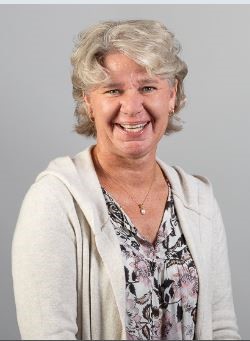
UNDATED – While Kristine Nunn was visiting her son at college, she was able to join him for a chapel service. During the service, a faculty member introduced a video that consisted of excerpts from a “60 Minutes” broadcast. It was a segment entitled, “The Lost Boys,” a story about children who were victims of a civil war in Somalia during the early 1990s.

Government troops had entered villages, destroying them and killing the villagers, and leaving the children behind. These children began to wander as “the lost boys of Somalia,” and eventually created what was referred to as a “river of children” wandering the countryside, taking care of each other. They numbered in the thousands. They suffered hunger, disease, and many perils of nature as they traveled, trying to survive as best they could.
For 12 years, the displaced children were taking care of one another, and taking on life in as raw a form as we can ever image. Following the video presentation, three of these boys, now students at the University, came forward and told first-person accounts of their story.
“They each gave compelling testimonies of their incredible experiences, and of their faith. I left the chapel that day overwhelmed with thoughts about their ordeal,” said Nunn, Manager of Child and Family Services at Centerstone. “As I recount this experience, it reinforces how privileged we are to be a part of a community, a children’s department, a stakeholders network, a Department of Children’s Services (DCS) coalition. All of these coalition partners are comprised of dedicated staff who are intensely engaged in assisting our own river of children navigating the foster care system.”
Foster children, and their families of origin, have been emotionally and even generationally wounded by trauma. These wounds may never fully heal. These children and their families (families who are often victims caught in the jaws of addiction and mental illness) suffer from a lack of belonging, lack of hope, lack of community connection, guilt, shame,
and a host of other emotional issues too numerous to mention. In an effort to keep foster children safe, they are placed into a foster system that may unintentionally reinforce the idea that they are different.

They lose power and control over their lives, becoming sheltered within a system of regulations that can hinder rather than encourage normal development. Many are separated from their communities, schools, and even their siblings and other extended family members, due to a lack of foster homes.
Additionally, foster children often move from home to home, school to school, and family to family trying to find their way – A River of Children.
“We all, within our own realm of influence, have been given an awesome responsibility to help shape the lives of these special children and their families… and we do just that, in spite of this imperfect system within which we serve,” Nunn added. “Each of us contribute and strive to better fill the cup of every child that comes our way. Every staff, every probation worker, every DCS family case manager, every community citizen, all contribute to the collective care of our lost children. Thanks to these efforts, we have some amazing success stories in our communities.”
“For this, we want to thank all who contribute to foster children and their families of origin, and for the enduring commitment, each has made. The river of children still flows,” she added. “There is work to be done. But because of each of you, their future is a little brighter, and their trauma is increasingly diminished.”
Kristine Nunn, LMFT, is the Manager of Child and Family Services at Centerstone, a not-for-profit health system providing mental health and substance use disorder treatments to people of all ages.



